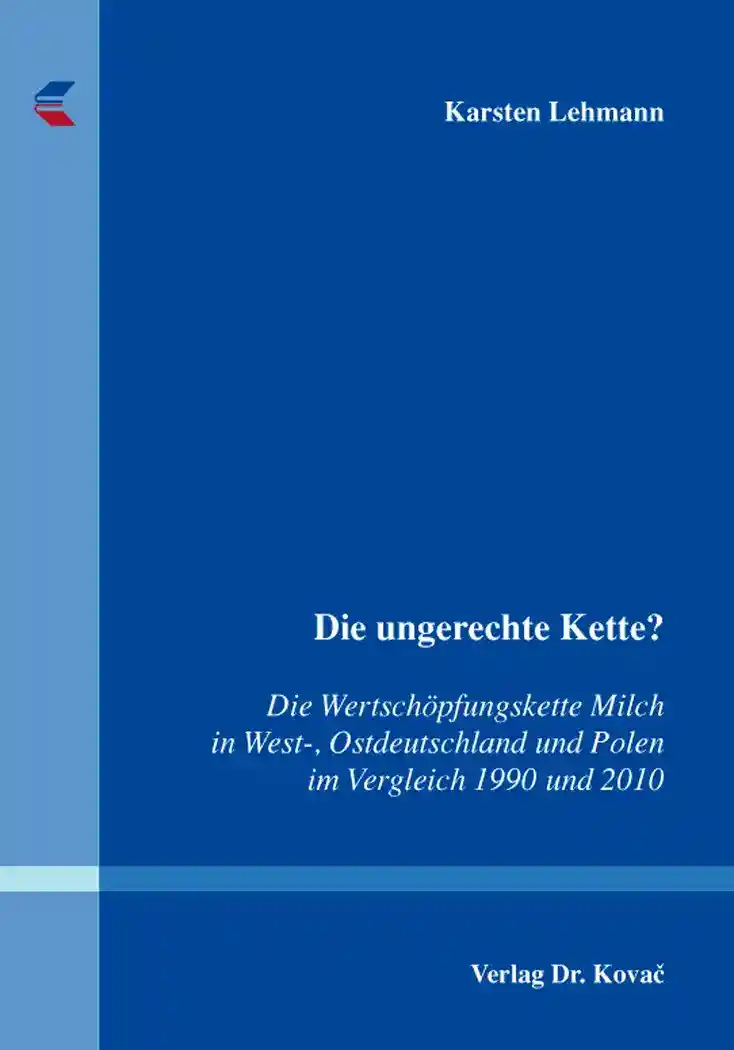Karsten LehmannDie ungerechte Kette?
Die Wertschöpfungskette Milch in West-, Ostdeutschland und Polen im Vergleich 1990 und 2010
Schriftenreihe agrarwissenschaftliche Forschungsergebnisse, volume 52
Hamburg 2014, 470 pages
ISBN 978-3-8300-7605-6 (print)
ISBN 978-3-339-07605-2 (eBook)
About this book deutschenglish
Due to globalization the production of goods is becoming more and more complex. Evidence of this can be found in the increase of stakeholders who now participate in the production of a certain commodity. Especially for standardized agricultural products this leads to marginalization of the producers, who lose power and influence over the commodities produced by them.
By using a value chain approach, this analysis shows for the product milk how during the last two decades flows of power, information and commodities have changed. It also describes how these changes influence the different stakeholders within the value chain. This paper focuses on the farmers, but also considers other stakeholders like dairies and the retail sector to guarantee a complete analysis. This is done by a comparison of three different regions (Lower Saxony/West Germany, Brandenburg/Eastern Germany and Zachodniopomorskie/Poland) with different prerequisites for development. These regions have in common a shared future development through membership of the EU.
First, a historical analysis of the development and organization of the different value chains in the regions is made. Next, based on qualitative and quantitative questionnaires the actual situation is considered. This is not solely accomplished through an intra-regional analysis, but also through a cluster-analysis of the competitiveness of the different companies regardless of the geographical context.
The results show that value chains change the most in geographical areas with a complete change in the policy framework. In Lower Saxony one can currently find companies and farmers which are economically soundly positioned. In Brandenburg there are big herds and farms due to historical factors. It follows that due to these nearly optimal conditions the farmers in this group are highly competitive. By contrast, Poland is characterized by small structures, which brings the economic future of many dairy farmers into question.
Regardless, nearly all dairy farmers have in common that they experienced a loss of power and influence over time in their specific value chain. The reason for this is the increasing dominance of the national and international retail sector. This exerts pressure on the dairies, which in turn pass the pressure on to the farmers. This development is contrary to existing theories and shows the difficult situation the dairy farmers are in, regardless of their competitive position.
